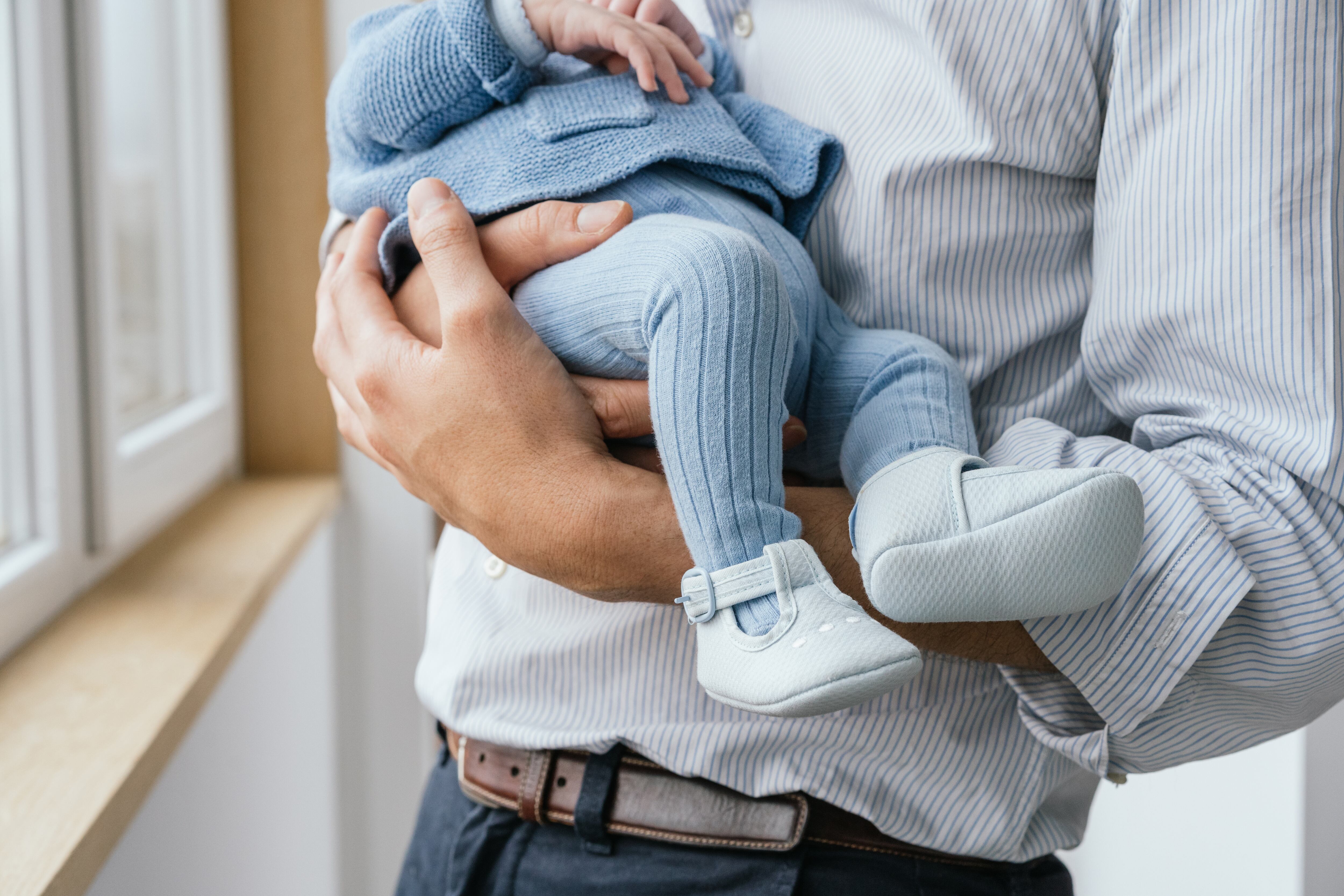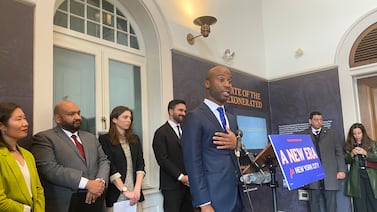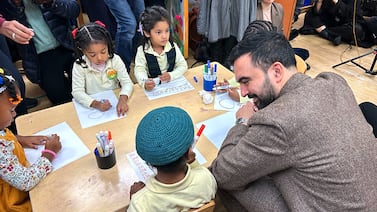Chicago Public Schools employees will soon have 12 weeks of fully paid parental leave — putting the district in line with city policy and well ahead of most other school systems across the country.
Parental leave became a campaign issue in January during the mayoral election, when the Chicago Teachers Union accused former Mayor Lori Lightfoot of reneging on plans to extend the city policy to teachers. A CPS spokesperson at the time said the union and district were “actively working” to update the policy.
Mayor Brandon Johnson, a former CTU organizer and teacher, announced the new leave policy on Thursday standing alongside CPS CEO Pedro Martinez and CTU President Stacy Davis Gates.
“It will ensure that once they return from leave, they come back refreshed, energized and ready to lead the next generation of young Chicagoans into success,” Johnson said.
Martinez said the exact details are still being worked out, but the plan is to roll out the new policy before the start of the 2023-24 school year. A working group has begun meeting, according to the mayor’s office. Once finalized, the policy will go before the Chicago Board of Education for a vote. All new and revised policies must be posted online for public comment for 30 days.
Currently, teachers have two weeks of leave with the ability to use short-term disability if they are the birthing parent. Davis Gates told Chalkbeat in January that teachers usually cobble together leaves using those benefits, sick and personal days, and unpaid time off allowed under the federal Family and Medical Leave Act. They also try to time pregnancies so they give birth when school is not in session.
“There are a lot of summer birthdays if you have teacher friends and that’s for a reason,” Davis Gates said Thursday.
Chicago will become an outlier nationally in providing teachers paid leave. According to the National Council on Teacher Quality, less than a quarter of nearly 150 school districts they reviewed, including the 100 largest, offer paid parental leave, but most offer fewer than 30 days.
While the details of the policy are still being worked out, Martinez estimated it could cost an additional $10 million annually. The district’s most recent budget was $9.5 billion.
“I think it’s a worthwhile investment,” Martinez said. “Because the reality is we lose teachers when they start having children, and that creates other challenges for us.”
Tiffany Childress Price, a teacher and mom of two, said the new policy is critical for retaining and recruiting high-quality educators.
“Becoming a parent was the best thing to happen to my teaching practice,” Childress Price said. “The way that I have seen other people’s children has transformed my empathy for struggling children and struggling families.”
Parental leave has historically been negotiated during contract talks in Chicago and elsewhere. Today’s announcement signals the policy will no longer be used as a bargaining chip. But Johnson bristled when asked what this says about how he might negotiate with his friends and former colleagues.
“This is not a gift to the CTU, this is a policy for the people of the city of Chicago,” Johnson said.
The union’s current contract is set to expire on June 30, 2024. Davis Gates and Martinez both said paid parental leave is no longer something that should be negotiated.
“It really is more of a policy for how we treat all of our employees,” Martinez said.
“When it is at the negotiating table, it gets crowded out by other things,” Davis Gates added. “We shouldn’t be trading parental leave for class size or class size for parental leave.”
All three touted today’s announcement as evidence of a more collaborative relationship between the mayor, the school district, and the teachers union. The energy is a stark contrast to the fraught labor relations under Chicago’s previous two mayors. Tensions between CTU and Lightfoot prompted an 11-day strike in 2019 and two actions during the height of the COVID pandemic.
The union also went on strike in 2012 for seven days after then-Mayor Rahm Emanuel rescinded a contractually-promised raise and pushed to unilaterally lengthen the school day and year.
Becky Vevea is the bureau chief for Chalkbeat Chicago. Contact Becky at bvevea@chalkbeat.org.






